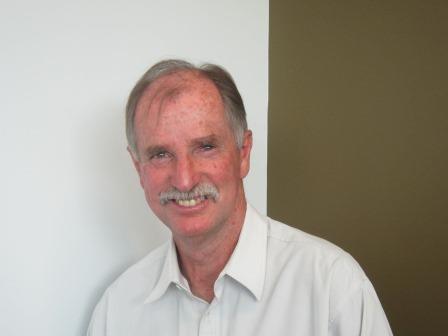Start Up Of You
Feeling like a fraud?
 Ever had the feeling that you don't deserve that pay rise, you’re not worthy of applying for a higher paying job or that even with your years of experience you will be exposed as a fraud?
Ever had the feeling that you don't deserve that pay rise, you’re not worthy of applying for a higher paying job or that even with your years of experience you will be exposed as a fraud?
These types of feelings can be very common in the workplace and can lead to poor self-esteem and lower productivity. Feelings of inadequacy, thinking that you don’t deserve to succeed or that you are simply not good enough can all be aspects of ‘imposter syndrome’.
Tips for making your job hunt more successful
 We’ve all been there; dissatisfied, uninterested, underappreciated or bored at our job. But we also know how hard it can be to leave your current job to find another. The job-hunting process can be tedious and heartbreaking, sometimes it can feel like you are applying for every vacant position possible but you are hearing absolutely nothing back. Not only is this time consuming and frustrating it can also negatively affect your self-esteem.
We’ve all been there; dissatisfied, uninterested, underappreciated or bored at our job. But we also know how hard it can be to leave your current job to find another. The job-hunting process can be tedious and heartbreaking, sometimes it can feel like you are applying for every vacant position possible but you are hearing absolutely nothing back. Not only is this time consuming and frustrating it can also negatively affect your self-esteem.
The “real life” benefits of board games
 Board games are often reserved for family holidays or ‘quality family time’. With television, social media and video games; board games are often overlooked. However, board games also tick a lot of educational boxes.
Board games are often reserved for family holidays or ‘quality family time’. With television, social media and video games; board games are often overlooked. However, board games also tick a lot of educational boxes.
Have you ever stopped and reflected on the real-life skills that board games teach us? Negotiation, patience, strategy and problem-solving - these can be difficult skills to learn, however board games can help us to practice these skills.
Chess can improve and challenge your strategic and logical thinking. Chess reinforces the importance of planning, strategy and foresight.
The Great Canberra Side Hustle
 It’s not a retro style of dancing making a comeback in Canberra, we’re referring to the growing number of Canberrans who have a business on the side. While Canberra might not be known as the entrepreneurial epicentre of Australia, beneath the lanyards and black suits, Canberrans are following their passions and launching more new businesses in the first half of 2018 than they have during the same period in the previous two years[1].
It’s not a retro style of dancing making a comeback in Canberra, we’re referring to the growing number of Canberrans who have a business on the side. While Canberra might not be known as the entrepreneurial epicentre of Australia, beneath the lanyards and black suits, Canberrans are following their passions and launching more new businesses in the first half of 2018 than they have during the same period in the previous two years[1].
The benefits of a ‘side hustle’ are well known and promoted by the likes of Scott Pape, author of the popular Barefoot Investor book. From learning the skills necessary to launch a new career; earning extra income to pay off a mortgage; diversifying risk in an uncertain labour market; to expanding your network and following your passion; a part-time business can have numerous advantages. Many people are not in the position to quit their day job and need the financial security of a 9-5 paycheck, making a side gig a good compromise.
Tips for travelling with a baby and toddler - medicines to pack
 Have you ever looked forward to a family holiday for months only to wish you had never left home? How is it that holidays, illness and ailments always seem to go together?
Have you ever looked forward to a family holiday for months only to wish you had never left home? How is it that holidays, illness and ailments always seem to go together?
Your baby and toddler might have been the picture of health at home, but the minute the plane touches down the runny nose starts. It’s challenging enough having sick children when you’re at home, but it can be even more stressful when you’re away from everything familiar.
When planning travel with a baby or toddler, your local community pharmacy can help you make sure that minor ailments don’t ruin your much anticipated vacation.
The Start-Up of 'You'
 Nowadays everyone needs an entrepreneurial mindset, not just people wanting to start a business. Entrepreneurship is a way of looking at the world; it’s about seeing possibilities rather than just challenges. No one needs to adopt this approach more than those facing difficult career transitions.
Nowadays everyone needs an entrepreneurial mindset, not just people wanting to start a business. Entrepreneurship is a way of looking at the world; it’s about seeing possibilities rather than just challenges. No one needs to adopt this approach more than those facing difficult career transitions.
Technological change, outsourcing, off-shoring, increasing numbers of people who can only find part-time, contract or freelance work – these all point to a very competitive job market. However, it’s not all doom and gloom. Our working lives are getting longer, which means you have time to explore two or three different careers over your working life.
The Gift of Extra Years
 ‘What would you do with an extra 30 years?’ asks the Allianz Longevity Project. While many of the negatives quickly spring to mind like financial security and health issues, you should also think of the gifts that an extra 10 or 15 years can bring.
‘What would you do with an extra 30 years?’ asks the Allianz Longevity Project. While many of the negatives quickly spring to mind like financial security and health issues, you should also think of the gifts that an extra 10 or 15 years can bring.
Opportunities to travel, spend time with your children and grandchildren, explore multiple interests, continue to expand your knowledge and have a positive impact on the world.
The key to making those extra years a gift rather than a burden is planning. No longer are you tied to the traditional life stages of education, work, and then retirement. You can craft multiple career and personal transitions to suit your interests and opportunities.
Here are some tips to help with your planning.
The Whirlwind of Life
 While we are all working on big goals within our business, we often get distracted by ‘the whirlwind’.
While we are all working on big goals within our business, we often get distracted by ‘the whirlwind’.
The whirlwind is made up of all the little things that happen each day, which somehow very quickly turn into the big stuff. The whirlwind is the drama, the ‘busy’, the little emergencies. The whirlwind is also a great place for procrastination and excuse making to take place.
So what do you need to know about the whirlwind?
Fostering the next generation of Inspirational Leaders
 Written by Kyle Fitzgerald, Consultant, Inspirational Workplaces
Written by Kyle Fitzgerald, Consultant, Inspirational Workplaces
Inspirational Workplaces, a leading Sydney-based organisational psychology consultancy, is offering an executive level leadership development program at no-cost to six high-potential, young Australians.
Through this program, Inspirational Workplaces hopes to foster Australia's next generation of inspirational leaders to help build a better future for Australia, and the world.
How do you deal with the stress of self-employment?
At Jamberoo Recreation Park, the newest, and most harrowing ride is the Funnel Web.
It's a waterslide that begins with a dark, twisting tunnel, then a sharp drop that spits you out onto a gigantic funnel.
Your raft shoots up the slide till it feels like you're about to tip over, then back down and out into the pool.
"I'm not sure I'm up for this," I thought, watching the rafts from the viewing platform.
But I was already in line, and my six-year old niece was going with me.
The first time, I hated the Funnel Web. Our raft went down with me backwards, which didn't help my overall comfort levels. The second time, I knew what to expect and loved it. The fourth time, it was business as usual.
Running a business regularly puts me back at the top of a waterslide.
What I Have Learnt... One Day You're the Sponge, the Next Day You're the Water

Mick Burgess didn't actually plan to have a family business; he was just focused on supporting his family and it all evolved from there.
"I just started out moving dirt in the landscaping world, and the business grew around me," says Mick.
I'm not sure whether Mick is flattered when we refer to him as one of Canberra's 'business elder's', but at Lighthouse when it comes to issues related to family business, Mick has decades worth of experience and is always willing to share.
According to Mick, "You don't know what you don't know in business, until you realise you don't know it".
Failure is an inside job
 'Fail early, fail often, but always fail forward' – these are the words of author John C. Maxwell and should be the mantra for all startup businesses. Anna Pino, CEO of Lighthouse Business Innovation Centre, a business accelerator that works with inventors, researchers and entrepreneurs, believes more needs to be done to teach resilience and break the stigma associated with failure in entrepreneurship.
'Fail early, fail often, but always fail forward' – these are the words of author John C. Maxwell and should be the mantra for all startup businesses. Anna Pino, CEO of Lighthouse Business Innovation Centre, a business accelerator that works with inventors, researchers and entrepreneurs, believes more needs to be done to teach resilience and break the stigma associated with failure in entrepreneurship.
"For anyone, not just entrepreneurs, failure is painful," says Ms Pino. "However, most of the businesses that have gone on to achieve major success will describe a journey filled with false starts, mistakes and lessons learned.
"The difference between those that pick themselves up, dust themselves off and do what has to be done very often comes down to attitude," added Ms Pino.
While you can't control everything that happens to you, you can control your attitude and be open to learning from your mistakes.
Five signs that you're running a business not just supporting a hobby
 While the old saying 'do what you love and the money will follow' is true in some instances, in many cases your art should stay your art.
While the old saying 'do what you love and the money will follow' is true in some instances, in many cases your art should stay your art.
So, how do you know if you have the right mindset to turn your hobby into a business?
Anna Pino, CEO of Lighthouse Business Innovation Centre - a business primer for start-ups on the road to commercialisation, offers FIVE tell-tale signs that indicate you have the right mindset to turn your hobby into a business.
Getting the most from mentoring – 4 ways reluctant mentors can share and guide
 Many mentors don't see themselves as mentors. They find that they drifted into it, realising that at some point they stopped taking suggestions and directions and they started providing that support to others.
Many mentors don't see themselves as mentors. They find that they drifted into it, realising that at some point they stopped taking suggestions and directions and they started providing that support to others.
Anna Pino, CEO of Lighthouse Business Innovation Centre, a business primer for start-ups and high growth businesses says this can be challenging on many levels.
"Some mentors feel they have enough problems in their own business and don't think that they can make the commitment of giving advice to others," says Ms Pino.
"They also often question whether they are in fact qualified enough to give advice."

